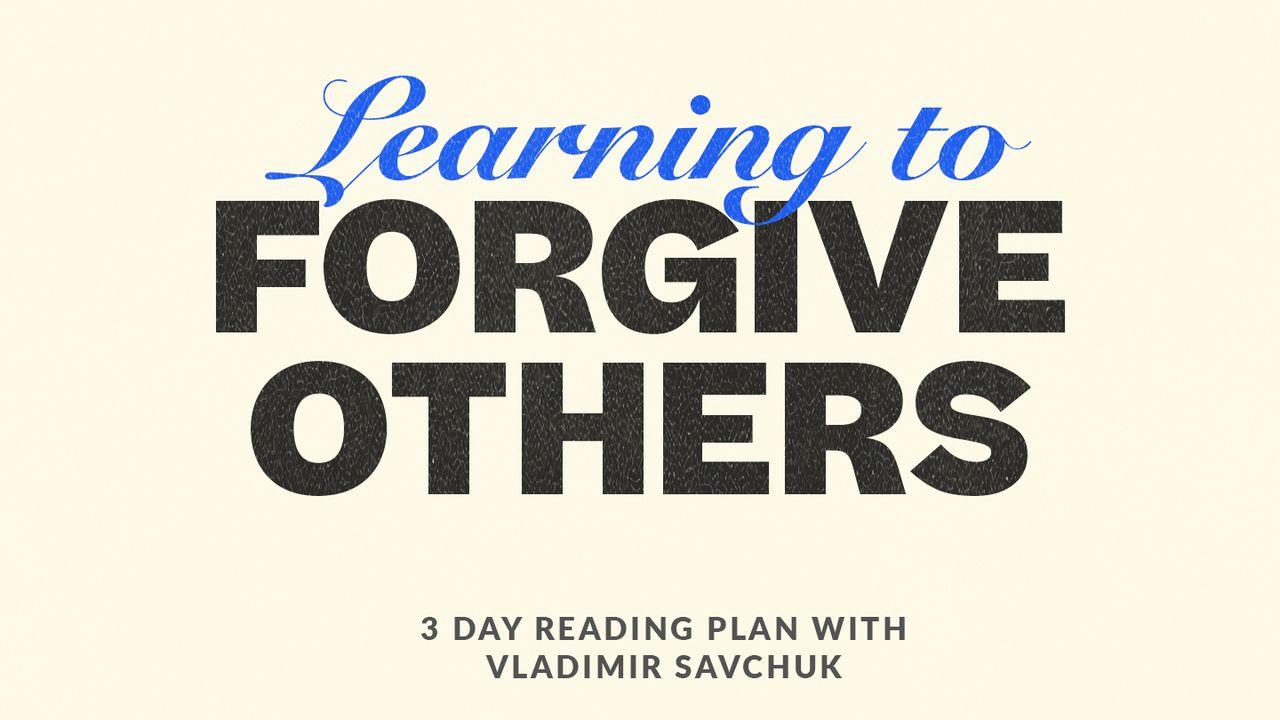How to Forgive Someone: Finding the Strength to Let Go and Move On
How to Forgive Someone: Finding the Strength to Let Go and Move On
Blog Article
Understanding the Value of Forgiveness in Healing Relationships
Mercy is frequently viewed as a simple act of releasing, yet its significance in healing connections extends far beyond mere absolution. It works as an essential system for emotional launch, allowing people to browse the complexities of discomfort and bitterness. Recognizing the nuanced differences in between forgiveness and settlement can illuminate the path towards healthier communications. As we explore the complex advantages of forgiveness, one need to consider exactly how these concepts can transform not only individual relationships however additionally the wider social textile. What remains to be discovered is the extensive impact forgiveness can carry specific growth and common consistency - The importance of forgiveness.
The Meaning of Mercy
Although mercy is usually perceived as an easy act of releasing, its meaning incorporates an intricate interaction of psychological and psychological processes. At its core, forgiveness is the conscious decision to release feelings of resentment or vengeance toward a specific or team that has actually created injury. This procedure is not just concerning discharging the transgressor; instead, it includes an extensive emotional change that can result in individual development and recovery.
Forgiveness is diverse, typically defined by an individual's internal battle to integrate their discomfort with the wish for peace. It calls for recognizing the misdoings devoted, refining the connected emotions, and ultimately choosing to relocate ahead without the concern of animosity. This choice often requires a cognitive change, where one reframes their understanding of the transgression and the perpetrator, permitting compassion and recognizing to emerge.
Importantly, mercy does not imply excusing the actions or failing to remember the infraction; it is a purposeful act that focuses on psychological wellness. By defining mercy in this way, we can value its function in assisting in healthier partnerships and promoting emotional durability, setting the phase for much deeper exploration right into its benefits.
Psychological Benefits of Mercy
Forgiveness supplies significant psychological benefits that can greatly impact a person's mental health and wellness and overall health. When a person selects to forgive, they proactively release sensations of resentment, animosity, and anger, which can otherwise develop a heavy emotional problem. This launch typically brings about a decrease in stress and anxiety and anxiety, advertising a sense of tranquility and emotional stability.
Moreover, mercy fosters a boosted ability for empathy and empathy. By recognizing the perspective of the culprit, individuals can grow a much deeper psychological resilience, which enhances their ability to manage future challenges. This process not only improves psychological law but likewise adds to an extra favorable expectation on life.
Furthermore, forgiving others can reinforce one's self-worth and self-regard. It permits individuals to redeem their personal power, damaging complimentary from the negative cycles of victimhood - The importance of forgiveness. This newly found empowerment can cause healthier psychological actions and stronger social partnerships
Forgiveness vs. Reconciliation
The distinction in between forgiveness and settlement is critical in recognizing the characteristics of healing connections. Forgiveness is an inner process in which a private selects to let go of resentment and unfavorable sensations in the direction of somebody that has actually caused harm. It is mainly a personal journey, concentrated on psychological launch and self-healing, enabling one to move on without carrying the problem of previous grievances.
In contrast, reconciliation involves restoring and recovering the relationship to a state of trust fund and shared respect. This process often calls for open communication, active engagement from both events, and a commitment to addressing the underlying issues that brought about the conflict. While forgiveness can take place separately, settlement necessitates the determination of both people to take part in dialogue and pursue a shared understanding.
It is vital to note that forgiveness does not constantly cause settlement. An individual may forgive one more without choosing to bring back the relationship, specifically if depend on has been irrevocably damaged or if the partnership is deemed harmful. Recognizing this distinction allows people to browse their emotions efficiently and make informed choices regarding their relationships.
Steps to Grow Mercy
Growing mercy is a purposeful process that involves several key actions intended at promoting emotional recovery. The initial step is acknowledging the pain brought on by the crime. Identifying one's feelings is necessary, as it enables people to refine their feelings genuinely.
Next, assessing the occurrence and understanding its effect can provide quality. This reflection needs to consist of checking out the inspirations behind the culprit's activities and acknowledging that everybody is fallible.
The third step entails making a conscious decision to forgive. This choice is vital, as it represents a readiness to allow go of animosity and progress.
Subsequently, sharing sensations in a positive way can be useful - The importance of forgiveness. Whether via journaling, chatting with a relied on friend, or see here seeking therapy, expression of feelings can assist in the mercy journey
Real-Life Instances of Forgiveness

In another example, a close-knit group of friends faced a significant break after one participant unintentionally shared a personal see it here trick. Rather than nurturing animosity, the affected buddy determined to forgive, recognizing the relevance of valuing the relationship over the blunder. This choice urged open dialogue and ultimately reinforced their connection.

Conclusion
To conclude, forgiveness plays a critical function in the healing of connections by helping with the launch of negative feelings and fostering compassion. By distinguishing between mercy and reconciliation, individuals can engage in a positive procedure that you can look here enhances emotional health. Executing actions to cultivate forgiveness can result in transformative outcomes, enhancing links and advertising a supportive atmosphere. Inevitably, the technique of forgiveness functions as a stimulant for individual growth and the nurturing of healthier social dynamics.

Report this page